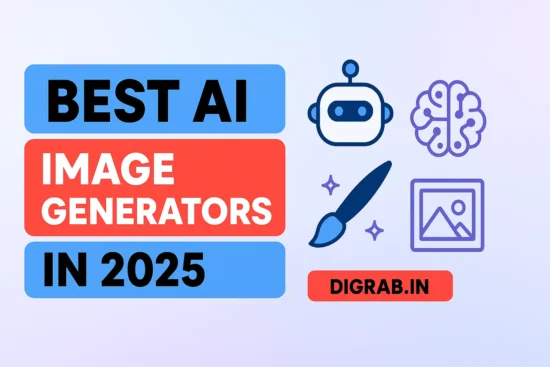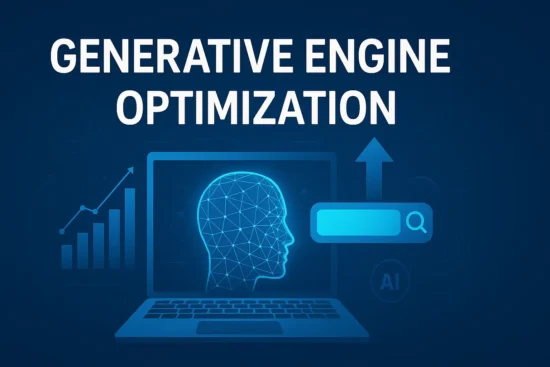
The world of digital marketing is constantly evolving, with new technologies, strategies, and tools being introduced to improve website visibility and performance. One of the most significant advancements in recent years has been Artificial Intelligence (AI), which is already transforming many industries. SEO (Search Engine Optimization) is no exception, with AI beginning to play a prominent role in shaping how search engines rank content and how businesses optimize their websites. But as AI continues to develop, the burning question remains: Will AI eventually replace SEO?
In this blog, we will explore the potential future of SEO and how AI is already influencing search. We will discuss the current relationship between AI and SEO, the potential benefits and challenges of AI, and what it means for businesses, marketers, and content creators. Let’s dive in and see what the future of search could look like!
What Is AI, and How Is It Changing the SEO Landscape?
Before we dive into whether AI will replace SEO, it’s essential to understand what AI is and how it’s currently affecting SEO. AI refers to the ability of machines to simulate human intelligence, such as learning, reasoning, problem-solving, and understanding language. In the context of SEO, AI is being used to automate and enhance various aspects of search engine optimization, including content creation, keyword research, link-building, and even technical SEO.
AI tools, such as Google’s RankBrain and BERT, are already being used to better understand user intent, improve search results, and deliver more relevant content. These advancements in AI have allowed search engines to get smarter and provide users with more accurate and personalized results. As AI (Artificial Intelligence)technology continues to evolve, it’s reasonable to think that its influence on Search Engine Optimisation will only grow.
The Role of AI in SEO Today
AI is already being used in several areas of SEO to improve website performance and ranking. Some of the most common uses of AI in SEO today include:
1. Content Optimization
AI tools, like Clearscope and Surfer SEO, help content creators optimize their writing by suggesting the best keywords to target and the ideal content structure. AI can analyze top-ranking pages and generate insights into what works best for a particular topic. This takes much of the guesswork out of content creation and helps marketers create better-optimized articles.
2. Keyword Research
AI-driven keyword research tools, such as Ahrefs and SEMrush, analyze vast amounts of data to provide insights into the best keywords to target. These tools are much more efficient than manual research, helping marketers discover long-tail keywords and untapped opportunities for growth.
3. User Experience (UX)
AI is also enhancing user experience, which is a crucial factor in SEO. AI-powered tools analyze user behavior, bounce rates, and other metrics to suggest improvements to website design and usability. These suggestions help businesses create websites that are both user-friendly and optimized for search engines.
4. Voice Search Optimization
With the rise of virtual assistants like Siri, Alexa, and Google Assistant, voice search has become more prevalent. AI plays a crucial role in voice search optimization, as it helps search engines better understand natural language queries and deliver relevant results. SEO experts must now focus on optimizing for voice search, which often requires different strategies than traditional text-based search.
5. Automation of Repetitive Tasks
AI can automate many of the repetitive tasks involved in SEO, such as checking broken links, analyzing website speed, and conducting site audits. This frees up time for SEO professionals to focus on more strategic aspects of their work, such as content creation and link-building.

Can AI Fully Replace SEO?
While AI is undoubtedly changing the SEO landscape, it’s important to recognize that AI and SEO are not mutually exclusive. AI can enhance and automate many aspects of SEO, but it’s unlikely that AI will ever fully replace Search Engine Optimisation. Here’s why:
1. SEO is About More Than Just Algorithms
SEO is not just about understanding search engine algorithms. It’s also about understanding the needs and behaviors of real people. While AI can help analyze data and improve ranking factors, it cannot fully replace the human touch that is required to understand user intent, create meaningful content, and build relationships with other websites. Human creativity and intuition still play a vital role in SEO.
2. AI Cannot Create High-Quality, Unique Content
While AI tools can assist with content optimization, they still cannot create truly high-quality, engaging, and unique content. Writing content that resonates with readers requires a deep understanding of the topic, storytelling skills, and the ability to connect with the audience on an emotional level—things that AI cannot replicate. As of now, AI-generated content often lacks the creativity and depth that human writers can provide.
3. Ethical and Trust Issues
There are also ethical and trust concerns surrounding AI-generated content. Many people are wary of content that is written by machines, as it can often lack authenticity and credibility. Search engines, such as Google, are increasingly focusing on E-A-T (Expertise, Authoritativeness, and Trustworthiness), which emphasizes the need for high-quality, expert-driven content. AI-generated content may struggle to meet these standards, making it less likely to rank well in search results.
4. SEO Requires Strategy and Adaptability
SEO is a dynamic and ever-changing field. Search engine algorithms are continually evolving, and SEO strategies need to be adjusted accordingly. While AI can help automate certain aspects of SEO, it lacks the ability to adapt to changes in the Search Engine Optimisation landscape on its own. SEO professionals need to be agile and stay updated with algorithm changes, industry trends, and user behavior shifts, which AI may not always anticipate.
5. Link-Building and Relationship-Building
Building high-quality backlinks is still one of the most important aspects of SEO. While AI can assist in identifying link-building opportunities and monitoring backlinks, it cannot replace the relationship-building aspect of Search Engine Optimisation. Building genuine relationships with other website owners and influencers is a human-driven process that requires trust and collaboration.
How AI Can Complement SEO
While AI may not fully replace SEO, it can certainly complement and enhance SEO efforts. Here are some ways AI can work alongside Search Engine Optimisation to improve results:
1. Enhanced Keyword Research
AI can significantly improve the process of keyword research by analyzing large datasets and identifying trends and opportunities. It can help SEO professionals discover hidden keywords and long-tail phrases that might not have been found through traditional methods.
2. Content Creation Assistance
AI tools can assist content creators by suggesting topics, titles, and relevant keywords to target. These tools can also help with content formatting and optimization. While AI-generated content may lack the creativity of human writers, it can still serve as a valuable starting point for creating high-quality articles.
3. Better User Experience
AI can help optimize the user experience by analyzing user behavior and providing insights into how websites can be improved. With AI, SEO professionals can better understand what users want and how to structure websites to meet those needs.
4. Predictive Analytics
AI can help predict trends and changes in user behavior, giving SEO professionals a head start in adjusting their strategies. By analyzing historical data, AI can forecast the types of content or keywords that are likely to perform well in the future.
The Future of SEO in an AI-Driven World
As AI technology continues to evolve, it will undoubtedly continue to impact Search Engine Optimisation. However, rather than replacing SEO, AI will likely transform how Search Engine Optimisation professionals approach their work. Here are some predictions for the future of SEO in an AI-driven world:
1. AI-Powered Personalization
Personalization is already becoming a significant factor in Search Engine Optimisation. With AI, search engines can provide highly personalized search results based on a user’s behavior, location, and preferences. This will require SEO professionals to focus more on creating content that is tailored to individual user needs.
2. Increased Focus on Voice Search
As more people use voice assistants to search the web, SEO will need to adapt to voice search optimization. AI-powered tools will be essential in helping businesses optimize their content for voice queries, which are often more conversational than traditional searches.
3. Integration of AI in SEO Tools
AI will be integrated into more SEO tools, making it easier for businesses to track performance, identify opportunities, and optimize content. These tools will become more sophisticated and capable of providing actionable insights that can drive Search Engine Optimisation strategy.
4. Automated Content Creation
While AI will never fully replace human writers, it will play a role in automating the creation of simple content, such as product descriptions, reports, and basic blog posts. This will allow businesses to scale their content production while still maintaining quality.
5. Greater Focus on E-A-T
As AI continues to advance, search engines will place even more emphasis on E-A-T (Expertise, Authoritativeness, and Trustworthiness). This means that businesses will need to focus on creating content that is not only optimized for keywords but also demonstrates expertise and authority in their field.
Conclusion
While AI is undoubtedly shaping the future of SEO, it’s unlikely that AI will fully replace SEO. Search Engine Optimisation is a complex, ever-evolving field that requires creativity, strategy, and human insight. AI can certainly complement SEO efforts by automating repetitive tasks, enhancing content optimization, and providing valuable insights. However, the human element—understanding user intent, creating high-quality content, and building relationships—will always remain essential in the world of Search Engine Optimisation.
As AI continues to develop, SEO professionals will need to adapt and integrate these new technologies into their strategies. The future of SEO will be a blend of human creativity and AI-powered automation, and businesses that embrace this combination will be well-positioned for success in the digital age.
In conclusion, AI will enhance but will not replace it entirely. SEO professionals will continue to play a crucial role in the ever-changing digital landscape, working alongside AI to improve website visibility and deliver valuable, relevant content to users. The future of SEO is bright, and with the right mix of AI and human expertise, businesses can thrive in an increasingly competitive online world.
If you want to read more blogs like this, visit our website for expert strategies and tips!




Leave a Reply